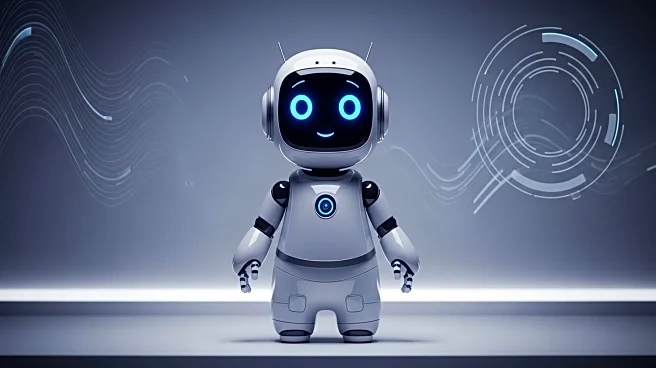What's Happening?
SwitchBot has introduced a new line of AI-powered robotic companions named Noa and Niko at the IFA 2025 event. These robots are designed to provide companionship and are equipped with on-device large language models (LLMs) that enable them to understand natural language prompts and recognize objects through computer vision. The robots can express emotions such as happiness, sadness, and jealousy, and they learn routines and memories over time, becoming an engaging presence in households. They are also capable of moving independently using small wheels, adding a dynamic element to their interaction capabilities.
Why It's Important?
The introduction of emotionally interactive AI robots by SwitchBot represents a significant advancement in the field of artificial intelligence and robotics. These robots could potentially transform how individuals interact with technology in their daily lives, offering companionship and emotional support. This development may impact industries focused on personal robotics and AI, as well as raise questions about privacy and the ethical implications of machines capable of emotional responses. The ability of these robots to learn and adapt to human routines could lead to increased integration of AI in personal spaces, influencing consumer behavior and expectations.
What's Next?
As SwitchBot continues to develop these AI companions, the company may face challenges related to consumer acceptance and ethical considerations. The market response will likely determine the future of such emotionally interactive robots, and further advancements could lead to broader applications in healthcare, elder care, and personal assistance. Stakeholders, including tech companies and regulatory bodies, may need to address privacy concerns and establish guidelines for the use of AI in personal environments.
Beyond the Headlines
The emergence of AI robots capable of emotional interaction could lead to long-term shifts in societal norms regarding companionship and technology. As these robots become more prevalent, they may influence cultural perceptions of relationships and emotional intelligence, potentially redefining human interaction with machines. Ethical considerations surrounding AI emotions and privacy will likely become more prominent, prompting discussions on the role of AI in everyday life.









